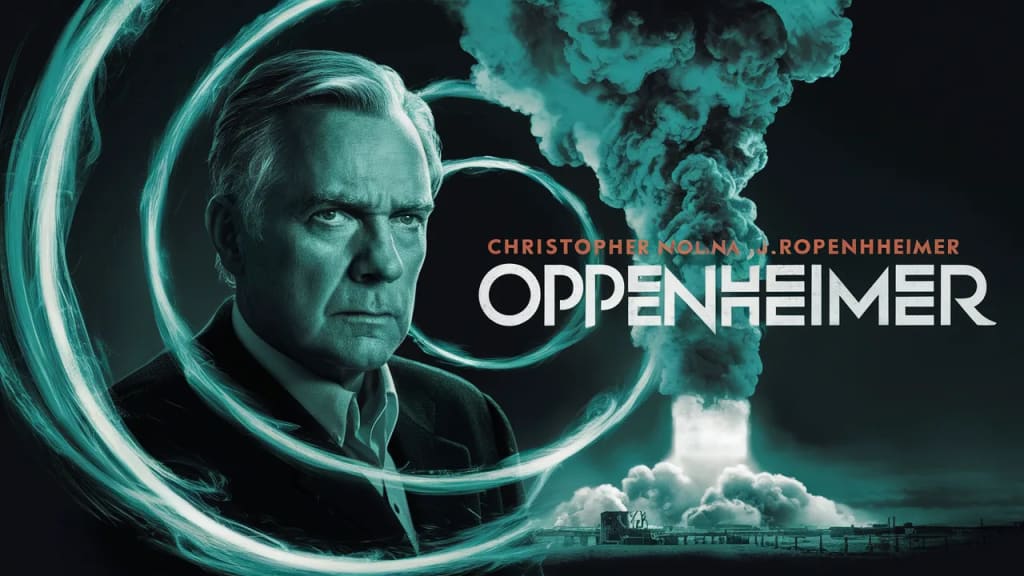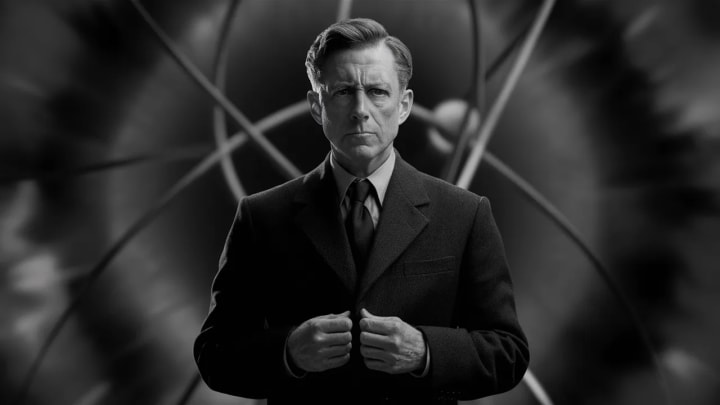Content warning
This story may contain sensitive material or discuss topics that some readers may find distressing. Reader discretion is advised. The views and opinions expressed in this story are those of the author and do not necessarily reflect the official policy or position of Vocal.
Movie Review: 'Oppenheimer' is Among the Best of 2024
Oppenheimer movie review

Christopher Nolan's Oppenheimer isn't simply a film; it's an encounter. Getting started at a weighty three hours, it digs into the existence of J. Robert Oppenheimer, the mysterious "Father of the Nuclear Bomb," with a profundity and intricacy that waits long after the credits roll. This audit will investigate the film's assets, shortcomings, and its investigation of the moral entanglement encompassing atomic weapons.
**A Breathtaking Exhibition by Cillian Murphy**
The film depends on Cillian Murphy's depiction of Oppenheimer. Murphy typifies the person's splendor, tormented by a biting feeling of moral disquiet. His depiction is nuanced, catching Oppenheimer's scholarly fire, his weakness, and the devastating load of liability he conveys. Murphy's eyes, frequently loaded up with a melancholic force, become a window into the spirit of a man grappling with the immense creation he rejuvenated.
**Nolan's Unique Style: Intricacy and Tension**
Nolan's fingerprints are all around this film. The account structure is non-straight, going through various times of Oppenheimer's life, reflecting the divided idea of his recollections and the ethical intricacies of his activities. This approach can be jolting on occasion, however it eventually mirrors the broke idea of both the man and the world he occupies.
The film flourishes with a feeling of consistent strain. Nolan stunningly uses quiet and sound plan to make an environment of disquiet. The ticking clock theme, both exacting and figurative, highlights the desperation of the Manhattan Undertaking and the approaching danger of the bomb's explosion.

**Visual Scene: From Highly contrasting to the Blinding Light**
Nolan's unique utilization of IMAX cameras is on full showcase here. The film flawlessly mixes high contrast arrangements with lively variety, reflecting the unmistakable difference between the pure pre-war world and the awful fallout of the nuclear bomb. The Trinity test itself is a visual display, both striking and startling. The blinding light and the shockwave are portrayed with an instinctive force that has an enduring effect.
**Past the Bomb: Investigating Ethical quality and Regret**
While the film fastidiously subtleties the logical competition to fabricate the bomb, its actual center lies in the ethical consequences. Oppenheimer arises not as a miscreant, but rather as a profoundly defective man troubled by the information on his creation's damaging potential. The film doesn't avoid depicting the moral discussions inside the Manhattan Task, giving voice to the people who scrutinized the need of the bomb.
**Supporting Cast and Authentic Accuracy**
The supporting cast is great, with Emily Obtuse conveying a strong exhibition as Oppenheimer's tangled spouse, Kitty. Matt Damon depicts General Forests, the tactical pioneer directing the venture, with a steely purpose. In any case, some authentic exactness is forfeited for sensational impact. The film mistreats specific occasions and characters, which could cause a commotion for history buffs.
**A Film That Requests Engagement**
Oppenheimer isn't a film for the easygoing moviegoer. Its thick discourse, loaded up with logical phrasing and philosophical thoughts, requires an engaged watcher. The film expects an essential comprehension of material science and the verifiable setting of The Second Great War. Those looking for a light, popcorn film ought to look somewhere else.

**Is Three Hours Too Long?**
The film's length is a disputed matter. While the conscious pacing takes into consideration a nuanced investigation of Oppenheimer and the bomb's effect, some could think that it is slow, particularly taking into account the absence of customary activity groupings. Nonetheless, the film's runtime takes into consideration a more profound person study and a more significant investigation of the moral issues encompassing atomic weapons.
**An Eerie Heritage: A Film That Resonates**
Oppenheimer isn't simply a biopic; it's a reflection on the force of science, the weight of liability, and the enduring results of war. It leaves the crowd with a significant feeling of disquiet, constraining us to stand up to the immense capability of the innovation we have released upon the world. The film is a distinct sign of the moral situations researchers and pioneers face, leaving us with waiting inquiries concerning the quest for information and the potential for its obliteration.
**In Conclusion**
Oppenheimer is a difficult yet compensating film. It's a masterpiece of filmmaking, moored by a remarkable execution from Cillian Murphy. While its extended runtime and complex story probably won't engage everybody, a film waits long after the credits roll, inciting reflection on the tradition of the nuclear bomb and the ethical obligation of logical advancement.
About the Creator
Enjoyed the story? Support the Creator.
Subscribe for free to receive all their stories in your feed. You could also pledge your support or give them a one-off tip, letting them know you appreciate their work.






Comments (1)
Such a great film!